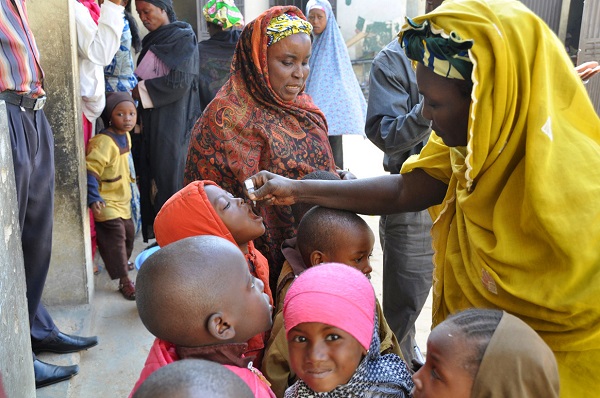
In a groundbreaking initiative to enhance healthcare accessibility for children in Nigeria, the United States government has declared its resolute commitment to reaching children who have not yet received any vaccines, often referred to as “zero-dose children”.
The global immunisation division programme director at the US Centre for Disease Control and Prevention (CDC), Dr. Patricia Tanifum conveyed this commitment during a roundtable event in Abuja on Wednesday. The focus is on addressing child mortality rates and ensuring a healthier future for Nigerian children.
Tanifum highlighted the significance of immunization in protecting children’s health and well-being, emphasising that it is a fundamental right for every child. She stated, “Immunization is a fundamental right of every child, and we are fully committed to ensuring that no child in Nigeria is left behind when it comes to life-saving vaccines”.
Zero-dose children are those who have not received any vaccines on the routine schedule, measured by the absence of the first dose of the Diphtheria, Tetanus, and Pertussis vaccine. Tanifum acknowledged the vulnerable position of this group, underscoring the higher risk they face of contracting preventable diseases with severe consequences for their health and overall development.
To address this critical issue, Tanifum announced that the US government is committed to providing substantial technical support to Nigeria’s immunisation programmes. This assistance will focus on strengthening healthcare infrastructure, training healthcare workers, and improving vaccine distribution systems, ensuring coverage even in the most remote areas.
Senior immunisation specialist at the global immunisation division, Global Health Centre, US CDC, Dr. Hadley Ikwe emphasised the ongoing collaboration with the Government of Nigeria and global partners to optimise routine immunisation and sustain efforts to eradicate polio.
Ikwe outlined key objectives, including eradicating all forms of polioviruses in Nigeria, increasing routine immunisation coverage to 90 per cent by 2028, reducing zero-dose children, and integrating immunisation investments with other primary healthcare services to strengthen the health system.
Highlighting the impact of vaccines on public health, Ikwe stated that vaccines have been one of the most impactful interventions in preventing illnesses and deaths throughout history. They have successfully eradicated diseases such as smallpox and controlled others like measles, meningitis, yellow fever and more.
However, he noted that the COVID-19 pandemic led to a significant global increase in the number of zero-dose children, with Nigeria bearing the highest-burden at 2.3 million. As of 2021, only about 57 per cent of eligible children in Nigeria were fully vaccinated.
Ikwe stressed the susceptibility of zero-dose children to various diseases and the potential for epidemics of vaccine-preventable diseases within communities. He revealed that there are over 19 million zero-dose children globally, with Nigeria accounting for the highest-burden.
CEO of Sydani Group, Dr. Sidney Sampson expressed optimism about the impact of the commitment, emphasising the potential to significantly reduce child mortality rates and create a healthier future for Nigeria. Sampson acknowledged the importance of partnerships with the Nigerian government and other stakeholders in achieving this goal.
In collaboration with the US government, joint initiatives were launched to raise awareness about the importance of immunization and dispel misconceptions or myths surrounding vaccines. The efforts aimed to build trust within communities and encourage parents to vaccinate their children.
This commitment from the US government reflects a strong partnership between nations, signalling a collaborative effort to overcome challenges and ensure that every child in Nigeria receives the life-saving vaccines they deserve. The initiative holds the promise of transforming the healthcare landscape for children and contributing to the broader goal of public health in Nigeria.

